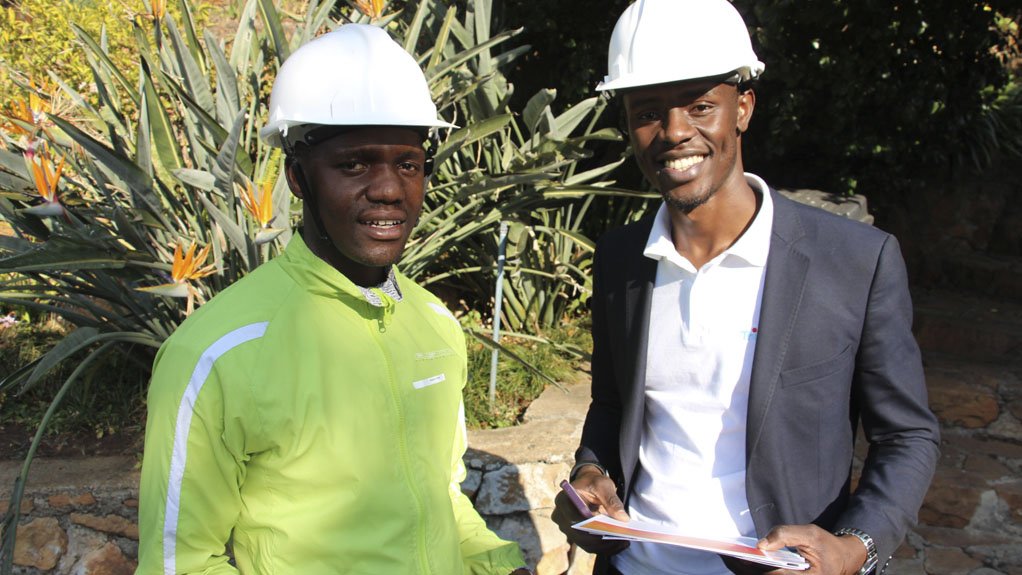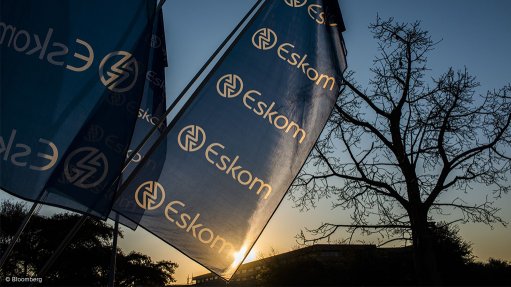Young innovative entrepreneurs offer renewable-energy solutions
State-owned power utility Eskom’s Development Foundation’s yearly Business Investment Competition (BIC) continues to discover businesses bringing about positive socioeconomic changes to the benefit of communities and the country.
The latest such business is solar energy company Lamo Solar, which provides renewable energy and specialises in solar photovoltaic (PV) and energy storage solutions. Lamo Solar won the BIC prize in the construction and engineering category on September 7 last year.
Lamo Solar was established by Tshibvumo Sikhwivhilu and Elmond Khoza while completing their undergraduate degrees in electrical engineering at the University of the Witwatersrand, in Johannesburg.
Lamo Solar provides its clients with tailored solar PV systems in residential, industrial and commercial setups. These systems can be set up as on- and off-grid solar systems, hybrid solar systems, as well as backup solar systems. The company also has a special interest in off-grid microgrids for the electrification of rural communities.
The Fourways-based company recently won first prize and R100 000 in the construction and engineering category of the BIC. The duo established the business to help address the energy challenge facing South Africa and the sub-Saharan Africa region. “As classmates, we developed a keen interest in solar PV technology as a response to the mismatch in energy supply and demand, the need to diversify South Africa’s energy mix and, more importantly, the lack of access to affordable electricity in rural communities” says Tshibvumo.
Now, with four permanent and six part-time employees, the company has so far installed generation capacity of more than 500 kW of distributed solar energy. As a finalist and a winner in the BIC, Lamo Solar also had the opportunity to exhibit its products and services at the Small Business Expo (SBE) last month, held at the Ticketpro Dome in Northriding, Randburg. The company met with and marketed its services to potential clients and engaged with other finalists of the competition for potential and mutually beneficial collaborations.
Sikhwivhilu tells Engineering News that, as part of the company’s youth month celebrations in June, it will launch a solar training programme in partnership with nonprofit education organisation the Thusanani Foundation.
The pilot programme will be tailored to train young women from the Diepsloot township in the design, installation, maintenance and operation of solar PV systems for residential, industrial and commercial clients.
“We aim to train 50 students by year-end. This is in response to the unemployment, inequality and poverty challenges faced by our country and in line with the National Development Plan as we head towards year 2030,” says Tshibvumo.
Lamo Solar Solutions
The company’s Offgrid Solar System induces direct current (dc) electricity in the solar panels. The electricity is used to charge the batteries. The inverter converts the dc electricity from the battery bank into alternative current (ac) electricity, which is fed to the domestic appliances. This system operates without a power grid. An optional generator can be installed to serve as a backup to the solar system. These systems are ideal for rural and remote areas where there is no access to the grid.
The Grid Tie Solar System induces dc electricity in the solar panels. The inverter converts the dc electricity into ac electricity, which can be used for most appliances. Grid tie systems are designed to use the solar energy immediately after being harnessed. These systems work together with a power grid, and such a system will not be operational during a power cut. A grid tie system is used to reduce the amount of energy consumed from the power grid during the day when the sun is shining.
The Hybrid Solar System induces dc electricity in the solar panels. The electricity is used to charge the batteries. When the battery bank is fully charged, the system operates like a grid tie solar system, through which the power produced will be fed directly to a domestic dwelling. A hybrid inverter is the most essential component for this type of system. A hybrid system will supply a dedicated number of appliances during power cuts from the battery bank.
The Battery Backup System is designed such that it can be developed into a full solar system at a later stage by simply adding solar panels and a charge controller. This system is equipped with a bidirectional inverter. When grid power is available, it is used to charge the batteries and, during power cuts, the energy stored in the batteries is used to power essential appliances in a building.
With the PV-Generator, the electricity produced by the solar panels is converted into ac electricity by a grid tie inverter. Generators are used as the primary supply of power to the building and the solar system supplies energy during the day to reduce the amount of diesel used.
Article Enquiry
Email Article
Save Article
Feedback
To advertise email advertising@creamermedia.co.za or click here
Press Office
Announcements
What's On
Subscribe to improve your user experience...
Option 1 (equivalent of R125 a month):
Receive a weekly copy of Creamer Media's Engineering News & Mining Weekly magazine
(print copy for those in South Africa and e-magazine for those outside of South Africa)
Receive daily email newsletters
Access to full search results
Access archive of magazine back copies
Access to Projects in Progress
Access to ONE Research Report of your choice in PDF format
Option 2 (equivalent of R375 a month):
All benefits from Option 1
PLUS
Access to Creamer Media's Research Channel Africa for ALL Research Reports, in PDF format, on various industrial and mining sectors
including Electricity; Water; Energy Transition; Hydrogen; Roads, Rail and Ports; Coal; Gold; Platinum; Battery Metals; etc.
Already a subscriber?
Forgotten your password?
Receive weekly copy of Creamer Media's Engineering News & Mining Weekly magazine (print copy for those in South Africa and e-magazine for those outside of South Africa)
➕
Recieve daily email newsletters
➕
Access to full search results
➕
Access archive of magazine back copies
➕
Access to Projects in Progress
➕
Access to ONE Research Report of your choice in PDF format
RESEARCH CHANNEL AFRICA
R4500 (equivalent of R375 a month)
SUBSCRIBEAll benefits from Option 1
➕
Access to Creamer Media's Research Channel Africa for ALL Research Reports on various industrial and mining sectors, in PDF format, including on:
Electricity
➕
Water
➕
Energy Transition
➕
Hydrogen
➕
Roads, Rail and Ports
➕
Coal
➕
Gold
➕
Platinum
➕
Battery Metals
➕
etc.
Receive all benefits from Option 1 or Option 2 delivered to numerous people at your company
➕
Multiple User names and Passwords for simultaneous log-ins
➕
Intranet integration access to all in your organisation




















